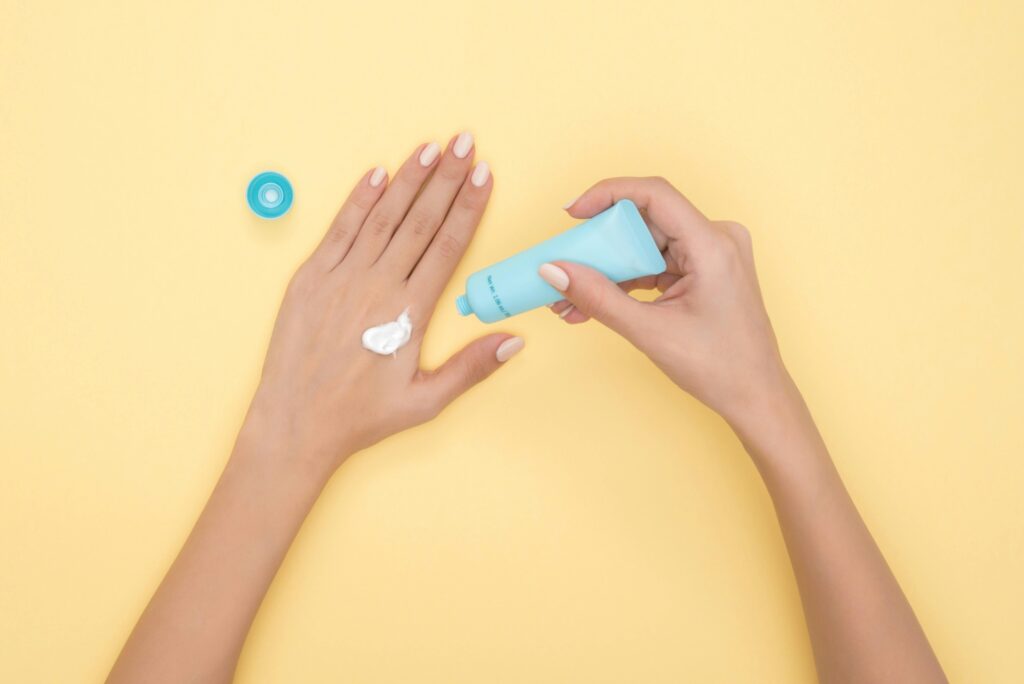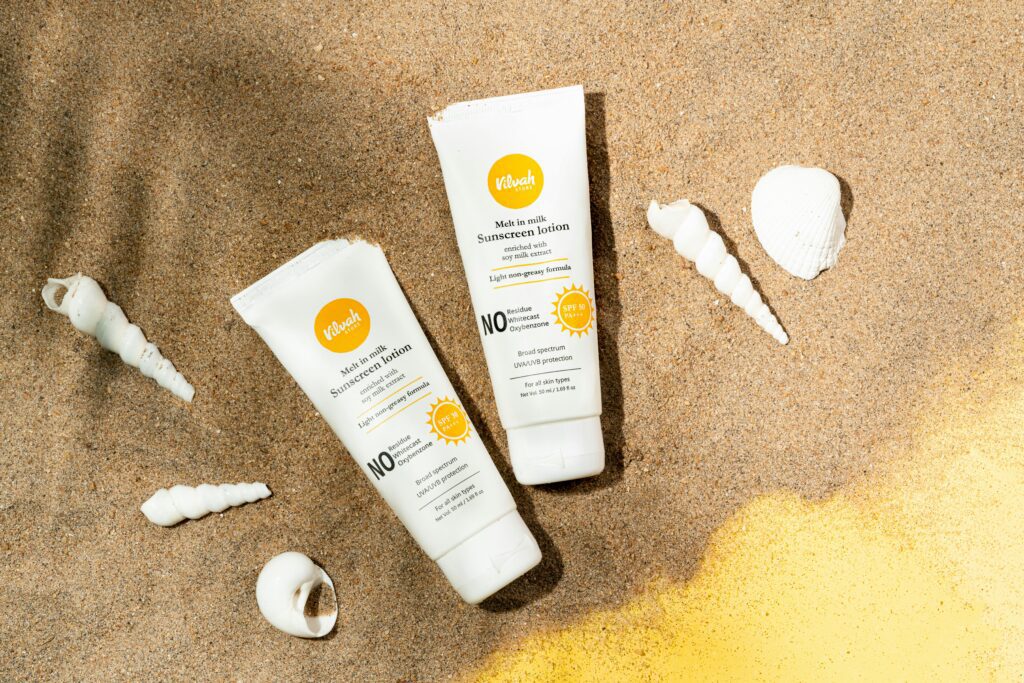Sunshine brings smiles, picnics, and the irresistible call of the beach. But before you step out to soak up the rays, there’s a silent guardian you need to apply—sunscreen. Not just a smear across your face but a well-thought-out application that guards your skin against the harsh realities of sun damage. Welcome to Lady In The Shade’s master class on sunscreen application tips, where we decode the mysteries of a perfect sun protection routine.

Choosing the Right Sunscreen
The secret to effective sun protection starts with selecting a broad-spectrum sunscreen. Broad-spectrum formulas are crucial because they protect against UVA and UVB rays, which can harm your skin. UVB rays are primarily responsible for sunburn and play a significant role in causing skin cancer, while UVA rays penetrate deeper into the skin and are associated with premature aging.
Another smart choice is to aim for a sunscreen with at least SPF 30. SPF, or Sun Protection Factor, measures how well a sunscreen protects skin from UVB rays. An SPF 30 sunscreen blocks 97% of UVB rays, offering protection for everyday activities and longer outdoor days. If your plans include swimming or engaging in activities that cause you to sweat, choosing a water-resistant sunscreen is a must. Water-resistant formulas help maintain protection even when wet or sweating, making them ideal for beach days and sports.

Application Tips: Timing and Amount
Timing your application correctly can boost the effectiveness of your sunscreen. For optimal protection, apply sunscreen about 20 minutes before you go outside. This allows the sunscreen to form a protective layer on your skin, making it more effective once you enter the sunlight.
The amount of sunscreen you apply is as important as the type you choose. A good rule of thumb is to use about an ounce (roughly the size of a shot glass) to cover your entire body. This amount ensures sufficient protection over all exposed areas.

Ensuring Complete Coverage
When applying sunscreen, your number one tip is to cover all exposed skin. Commonly missed spots include the tops of your feet, your ears, and the back of your neck. These areas are just as vulnerable to UV rays as the rest of your body, so giving them adequate protection is essential!
For those who wear makeup, always apply sunscreen first. This order ensures that your sunscreen can form an effective barrier directly on your skin. Reapplying sunscreen is also vital, especially if you’re outside for multiple hours or after swimming or sweating. A Lady In The Shade tip is regularly reapplying every two hours, keeping your protection solid and effective throughout the day.

FAQs: Sizzle, Not Burn
- What SPF is best for daily use? For everyday activities, opt for at least SPF 30. If you’re planning extended outdoor time, aim higher!
- Does sunscreen expire? Yep! Check the expiration date, and when in doubt, toss it out. Using expired sunscreen can reduce its effectiveness.
- Can I skip sunscreen on a cloudy day? Those sneaky UV rays can penetrate clouds, so sunscreen’s a must, rain or shine!

The Takeaway on Sun Protection
Armed with these essential sunscreen application tips, you can confidently enjoy the sun while significantly reducing your risk of skin damage. The consistent use of sunscreen is more than just a preventive measure against sunburn; it represents a commitment to your long-term health, actively guarding against melanoma and other forms of skin cancer. Incorporating sunscreen into your daily routine is an investment in your well-being, acknowledging the critical connection between skin health and overall health. So apply generously, reapply often, and confidently step into the sunlight, knowing you are well-protected and promoting a healthier future for yourself and others.
Stay Shady,
Jordan, Lady In The Shade
Medical Disclaimer: The information on this blog is for informational purposes only and is not a substitute for professional medical advice, diagnosis, or treatment. Always seek the advice of your physician or other qualified health providers with any questions you may have regarding a medical condition. Never disregard professional medical advice or delay seeking it because of something you have read on this website.